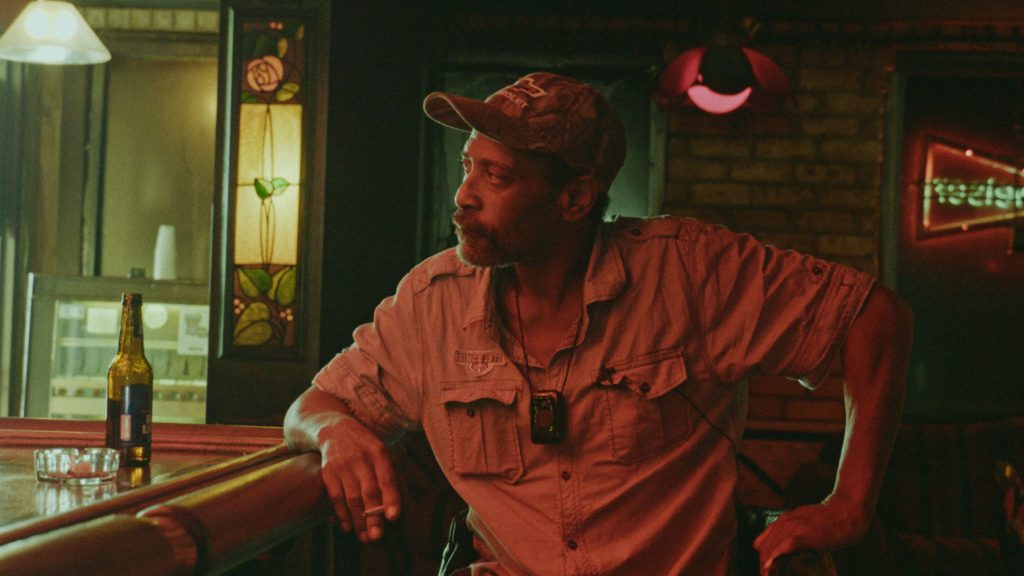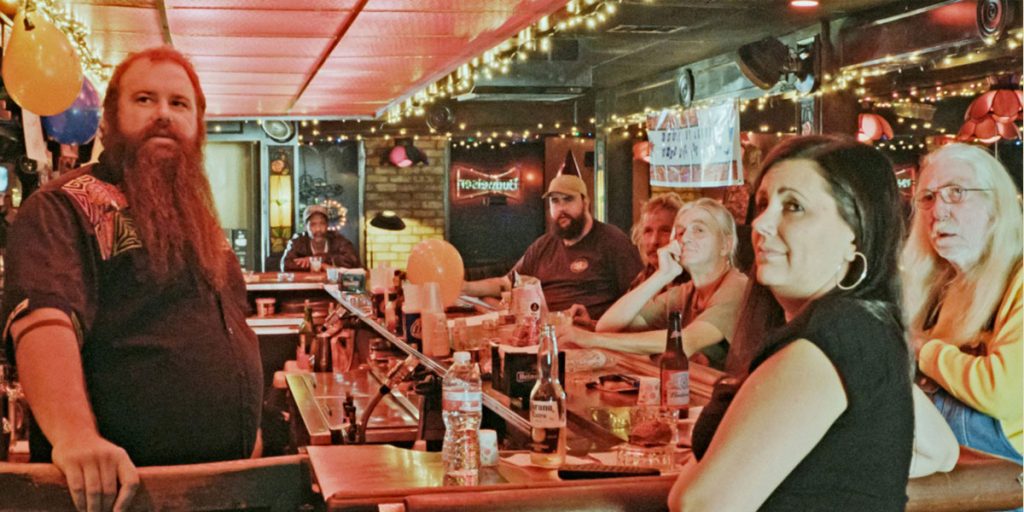The experimental style used by the Ross Brothers helps Bloody Nose, Empty Pockets stand out as one of the most unique documentaries of 2020.
There are a lot of reasons why Bloody Nose, Empty Pockets has a bit of a nostalgic feel to it. Granted, part of that could be because it’s been seven months since the last time I got to be in a bar — catching up with old friends and meeting new ones over the course of a night. And there is something special that Bill & Turner Ross do in their new experimental documentary, that premiered at Sundance in January before moving to VOD services in July, that makes you feel like you’ve been transported into your local dive bar and are having a night out with the regulars there.
With a flair in its storytelling style and a format that provides so many memorable moments throughout, Bloody Nose, Empty Pockets blurs that line between documentary and drama really effectively. Of course, that part is intentional on the part of the Ross Brothers. The documentary takes place on the final night before Roaring ‘20s — a small bar outside of Las Vegas — is set to close, and we get an inside look at those closing moments before last call with all of the bar’s regular patrons. But the film wasn’t made in Las Vegas. Roaring ‘20s is the name of the bar they filmed in, but it’s located just outside of New Orleans, and the “regulars” we get to know over the course of the film are a group of people the directors met while doing several sessions of casting where they went around to bars across New Orleans and talked to as many people as they could until they found the ones who they wanted to ask to come film the movie.
Of course, that doesn’t mean the moments we get in the bar aren’t real. The Ross Brothers still do an effective job of getting to the heart of who these people are, and their journeys that have led them to where they are in life. In several of those moments, it gets past the idea that this has been staged in any way and gets to a real emotional truth. This isn’t an ode or a farewell to a specific dive bar. Instead, this is a documentary that serves as a love letter to these small local watering holes you find in towns all over America. They’re places where people from all different walks of life meet and come together to have a night out and forget about their troubles for a little while, surrounded by friendly faces who know them the second they walk in.

Framing it as a literal last call for this bar is a really interesting concept as well. A lot of the people we meet in this bar throughout the film are broken, in certain ways. Some are far from home; some know their best days are behind them or feel like they’ve been left behind. But, in that bar, they find a community. And the question Bloody Nose, Empty Pockets asks is what happens when these people have to face the idea of that community being taken away from them when Roaring ‘20s closes. Sometimes you go to a place like that for an escape, and what’s next, when you get told that escape is going away?
The Ross Brothers filmed this over an 18-hour shoot and showed us what is, mostly, a very typical day at a bar. Jokes are told, songs are sung, people pick fights. Through the way the film is shot and how it sounds, you feel like you’re in that bar and hearing all of these things. And if you and your friends have a local favorite spot where you like to hang out, you’ll probably recognize so many of the different types of people in Roaring ‘20s on this night. Through all of it though, there’s a heart and a warmth — a desire from all of these people to see things get better.
One of the main “characters” in the film, who we spend a great deal of time with, is Michael Martin. He’s a local actor who never quite achieved what he wanted professionally. We see him from the very start of the film as he goes into the restroom and shaves before walking back out to the bar and taking his usual seat to start the day. He explains to the bartenders that one of the things he always prided himself on was not becoming an alcoholic until after he was already a failure. “I ruined my life sober, then I came to you,” he said. Later on he encourages a younger patron to leave and do something with his life because there is “nothing more boring than a guy who used to do stuff, but now is in a bar.”
With the way the film is set up, and knowing his real-life experience as an actor, it’s had to tell what is real and what is performance with Michael. But much like the rest of the film, he blurs that line so wonderfully that you completely forget about it and get lost in the stories and in the film as a whole. It’s a fascinating film to watch in a time like this, where so many bars and businesses like Roaring ‘20s are having a hard time. When they set out to make this, the Ross Brothers obviously had no idea that we’d be in this situation we’re in now. But what they did with Bloody Nose, Empty Pockets was a great achievement that makes you long for the next time we get to share a communal experience of a big night out with a lot of people again and makes you cherish the idea of the community that can be built in places like this.

